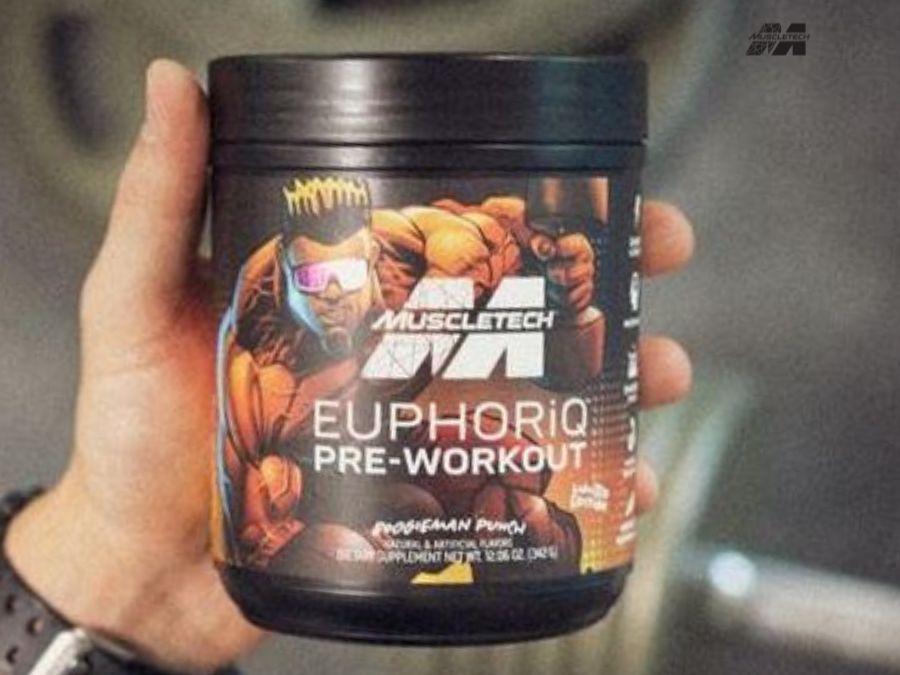Every now and then, you need an extra boost of mental focus, alertness, and energy before your workouts.
Until now, the go-to strategy has always been a strong cup of coffee or maybe a caffeine supplement.
The problem is that this is often associated with adverse side effects like jitters and anxiety.
But did you know that when you consume your preferred caffeine drink or supplement, a primary metabolite your body takes from that is a substance called paraxanthine?
Paraxanthine is one of the reason why you feel a boost in energy and alertness after drinking a strong cup of coffee.
In this feature, we will explore paraxanthine as a stand-alone supplement, the mechanisms behind its effects on the body, and why you may want to consider adding it to your supplement stack.
Whether you are looking to, enhance focus or optimize your energy levels without the adverse side effects of caffeine, this report will serve as your guide to paraxanthine's potential.
Table of content
What is Paraxanthine?
When you consume caffeine, it breaks down into metabolites in the body. One of the main metabolites is paraxanthine, with others being theobromine and theophylline. This process occurs in the liver and occurs irrespective of the source whether you consume caffeine from coffee, tea, energy drinks, etc.
These metabolites are is responsible for the effects you feel after consuming caffeine, such as increased alertness and energy.
Also Read: Comprehensive Guide to Weight Gain Supplements for Women
Chemical Structure and Relevance
Paraxanthine is part of a class of compounds known as “xanthines.” Due to their chemical formula, these compounds are very similar to caffeine itself.
Since it possesses a similar chemical formula to caffeine, it provides stimulant-like effects by blocking adenosine receptors in the brain.
Adenosine is a neurotransmitter responsible for relaxation and sleepiness, but when it is blocked by substances such as paraxanthine, it increases alertness, reduces fatigue, and enhances focus.
Have you read our research on pre-workouts for women ?
Theobromine and Theophylline
Although paraxanthine is a primary metabolite of caffeine, the other metabolites also have their roles. Theobromine is a smooth muscle relaxant and diuretic. It can be found in foods such as chocolate and is less stimulating than paraxanthine. However, it does still have stimulant effects, and has a much longer half-life than paraxanthine, so it takes much longer for the effects to wear off in the body.
Theophylline is also a mild stimulant that can relax bronchial muscles, making it an important substance in asthma medications. It is primarily used for respiratory and cardiovascular functions.
Despite their roles in the body, paraxanthine is the main driver behind caffeine's stimulant effects and, thus, is the primary metabolite regarding performance and fitness enhancements.
Fitness Benefits of Paraxanthine
1. Endurance and Strength Performance
If your goals include increasing your endurance and strength levels, paraxanthine could help you achieve them faster.
Since paraxanthine stimulates the central nervous system, ingesting it can help reduce fatigue and enhance alertness and focus in the gym. (1)
Both of these will enable you to perform with higher intensity and for longer duration than you otherwise might be able to.
One of the mechanisms behind these effects is the blocking of adenosine receptors mentioned above.
When paraxanthine blocks these receptors, the onset of fatigue is delayed, and one can train at higher intensities for longer.
For athletes who engage in strength-based events such as Olympic weightlifting, powerlifting, or functional fitness, paraxanthine can help increase alertness and focus.
During heavy resistance training, being locked into each repetition is paramount for force production, maintaining efficient technique, and sustaining the energy to push through challenging sets and reps.
Over time, as you continue to use paraxanthine and train with increased intensity and load than you otherwise would, your strength levels will increase week to week.
2. Increased Reaction Time
Aside from its physical performance benefits, paraxanthine can also enhance reaction time, which can be a critical aspect of athletic performance. (1)
For example, in sports where quick reactions can make or break the game, set, or match, such as racquet sports, racing, and other field sports, being just a little bit quicker than your opponent can be the difference between winning and losing.
Paraxanthine Dosage Strategies
Just like any supplement, there is an ideal dosing strategy to both optimize its effects and minimize unwanted side effects.
What is optimal for you can vary depending on your tolerance and goals; however, a dose between 200 and 300mg can yield positive effects. (1)
Consuming it roughly thirty minutes before our training session is ideal. This will help time the start of your workout with the digestion and absorption of the compound with enough time to take effect right when you need it.
Paraxanthine vs. Caffeine: Which Is Better?
Now that you understand the power behind Praxanthine, you might be wondering which compound is better to consume.
Paraxanthine or regular caffeine?
Both can offer stimulant-based effects, including increased energy, focus, and physical performance.
They are also not mutually exclusive; when caffeine is ingested, it is metabolized into paraxanthine, theobromine, and theophylline.
So, when you consume caffeine, you are also inadvertently consuming paraxanthine.
The key difference here is that paraxanthine, as a stand-alone compound, provides all that caffeine does.
Many people are sensitive to caffeine and might find it difficult to consume it without battling the adverse effects that come with it. (3)
But, with paraxanthine, those who are sensitive to caffeine can have all of the benefits with fewer of the downsides.
Thus, the answer regarding which compound is superior is clear, with paraxanthine being an ideal choice for those who want to increase their focus, alertness, and performance.
The Best Paraxanthine Supplements
Now that you have everything you need to know to get started with paraxanthine, it's time to get a high-quality supplement.
EUPHORiQ
EUPHORiQ is a new cutting-edge pre-workout containing several compounds designed to bring your performance to the next level.
It contains 300mg of paraxanthine, 300mg of AlphaSize (a unique source of choline), and 1.6g of NOOLVL to bring you all of the benefits of caffeine, like enhanced energy and focus.
EUPHORiQ will help you boost mental clarity and increase lean muscle mass, effectively making each scoop a powerful tool to elevate your training and performance.
Wrapping Up on Paraxanthine
Paraxanthine could be the next big compound to hit the health and fitness industry.
But, with paraxanthine supplements such as EUPHORiQ and BURN iQ, anyone who needs a boost in mental clarity, focus, and energy can have it.
If you are looking for a supplement to help you elevate your mental game and energy, without the downsides associated with caffeine, look no further than EUPHORiQ or BURN iQ.
Pick up one of these to powerful supplements, add paraxanthine to your supplement stack and get ready to take your workouts to the next level!
References:
- Yoo, C., Xing, D., Gonzalez, D. E., Jenkins, V., Nottingham, K., Dickerson, B., Leonard, M., Ko, J., Lewis, M. H., Faries, M., Kephart, W., Purpura, M., Jäger, R., Wells, S. D., Liao, K., Sowinski, R., Rasmussen, C. J., & Kreider, R. B. (2024). Paraxanthine provides greater improvement in cognitive function than caffeine after performing a 10-km run. Journal of the International Society of Sports Nutrition, 21(1), 2352779. https://doi.org/10.1080/15502783.2024.2352779
- Hetzler, R. K., Knowlton, R. G., Somani, S. M., Brown, D. D., & Perkins, R. M., 3rd (1990). Effect of paraxanthine on FFA mobilization after intravenous caffeine administration in humans. Journal of applied physiology (Bethesda, Md. : 1985), 68(1), 44–47. https://doi.org/10.1152/jappl.1990.68.1.44
- Szlapinski, S. K., Charrette, A., Guthrie, N., & Hilmas, C. J. (2023). Paraxanthine safety and comparison to caffeine. Frontiers in toxicology, 5, 1117729. https://doi.org/10.3389/ftox.2023.1117729








